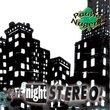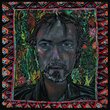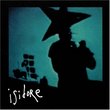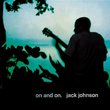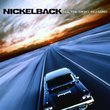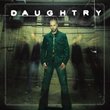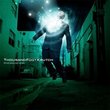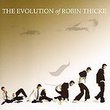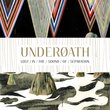| All Artists: Marty Willson-Piper Title: Nightjar Members Wishing: 1 Total Copies: 0 Label: SECOND MOTION Original Release Date: 1/1/2009 Re-Release Date: 3/3/2009 Genres: Alternative Rock, Pop, Rock Styles: Indie & Lo-Fi, Singer-Songwriters, Adult Alternative Number of Discs: 1 SwapaCD Credits: 1 Other Editions: Nightjar UPCs: 634457508927, 7033662081622 |
Search - Marty Willson-Piper :: Nightjar
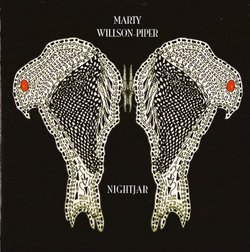 | Marty Willson-Piper Nightjar Genres: Alternative Rock, Pop, Rock
Marty Willson-Piper is the guitarist and sometimes singer for the legendary Australian band The Church. His first solo album in 8 years, multiple sources have claimed it to be ''the best record of his career.'' After two d... more » |
Larger Image |
CD DetailsSynopsis
Product Description Marty Willson-Piper is the guitarist and sometimes singer for the legendary Australian band The Church. His first solo album in 8 years, multiple sources have claimed it to be ''the best record of his career.'' After two diverse albums from his on going Nocorum collaboration in 2003 & 2006 respectively, it has been quite some time since his last studio album Hanging Out in Heaven in 2000. Although he released a 22 track solo live from The Other Side album he soon realized that 10 new songs had crept up on him in the night and had been featuring in live sets but had not been recorded. Nightjar is a collection of stories of loss and hope, adventuring into complexities of the human condition through the labyrinths of self doubt and confidence. You'll never have to see your therapist again. Similar CDs
Similarly Requested CDs
|
CD ReviewsMarty Willson-Piper's Nightjar Thomas Thomsen | Denmark | 03/30/2009 (4 out of 5 stars) ""And the hero's in ecstacy
As he waves to the crowd But the hero's the enemy As the truth is devoured." (The Sniper) The otherworldly and fascinating music of guitarist Marty willson-Piper's long-time band, excellent Australian cult legends The Church, tends to be a lot more adventurous than his own solo works, and Nightjar is no exception in this regard. Nonetheless, as with his band mate Steve Kilbey's magnificient Painkiller, released the same year, overall it's his strongest, most endearing (and most ambitious) solo album so far. As usual with these guys, no matter what they do, there is a lot to admire here. Rooted in folk-rock/folk, the arrangements of the songs on Nightjar are lush and intricate, with a wide array of instruments ranging from electric 12-string guitars, acoustic guitars, violin, strings, trumpet, bamboo flute and accordion to pedal steel guitar (all exposed to subtle, understated playing). Nightjar is a much more orthodox record than his bandmate Steve Kilbey's complex Painkiller, but the song structures and the layered, atmospheric guitars result in songs that never become too conventional and predictable. Add to this Marty's voice, which is as rich, smooth and soothing to the soul as always, and you've got an album that no The Church fan should be without. Nightjar's opener, the hypnotic and beautifully arranged No One There, is also the album's strongest and most powerful track. With its dramatic intro (drums fading in, followed by acoustic and electric guitar) and its tasteful instrumental backing and Marty Willson-Piper's interweaving lead & backing vocals, it's a breathtaking composition. Another big and sweeping song on Nightjar is the striking The Sniper, an acerbic commentary on the hypocrisy and false pretenses of the justification of war-making ("And underneath we all know it / And I sit and watch it happen"), in this particular case presumably the war in Irac ("And the hero's in ecstacy / As he waves to the crowd / But the hero's the enemy / As the truth is devoured"). The sniper's actual identity isn't revealed, only that he has reached his breaking-point, leaving it up to the listener to decide, whether he's a soldier...or, more likely, one of us going crazy with the insanity of it all ("I've waved goodbye to the rational / With this democratic choice / For tonight I'm going national / With my only real voice"). Other noteworthy songs on Nightjar include: the infectious, arpeggio folk of More Is Less (which brings to mind early Al Stewart), the regretful Lullaby Of The Lonely ("You thought that you could manifest your dreams / Then you find you're on the losing team"), the acoustic piece Song For Victor Jara (a tribute to the Chilean poet, singer/songwriter & political activist, who was shot to death), featuring a beautiful bamboo flute solo, and the pedal steel guitar-infused The Love You Never Had (a song Ryan Adams could've written) about the elusiveness of love ("If you ever want to fall in love again / You know it isn't if, it's only when / On an unsuspecting corner / With nobody to warn you / And you know it fails 12 times out of 10"). And then there's one of my favorite songs on the album, the wistful and serene I Must Have Fallen, a duet with Swedish/Polynesian girlfriend Tiare Helberg in which Willson-Piper sings of how love appeared, when he least expected it ("Skin like light, what a sight / When I first saw you / Standing there, unaware / Your neck bare, yellow hair / I already adore you"). Nightjar is Willson-Piper's most fulfilling work outside of The Church along with Sparks Lane, the first release by his side project Noctorum (with childhood friend Dare Mason). " |

 Track Listings (10) - Disc #1
Track Listings (10) - Disc #1
